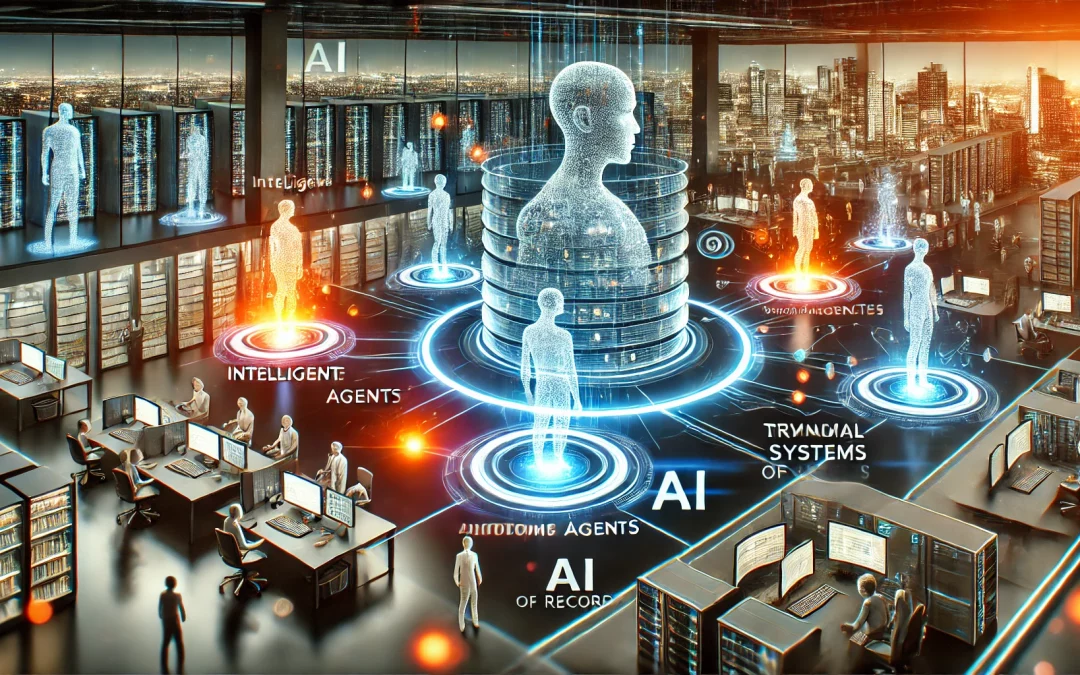In the rapidly changing technological landscape, the rise of systems of agents is reshaping how we think about data management. While traditional systems of records (SOR) have long served as the backbone of organizational operations, storing and processing static records like customer information, transactions, and inventory, AI-driven systems of agents are poised to complement, integrate into, and eventually replace parts of traditional systems of records in many aspects. This hybrid approach promises to transform the way businesses handle data, improve decision-making, and drive innovation.
At their core, systems of agents are decentralized, intelligent entities capable of interacting with their environment, learning from experience, and making autonomous decisions. Unlike traditional systems of records that primarily store data for retrieval and processing, systems of agents go a step further by actively engaging with data in real-time, analyzing it, and initiating actions based on context and real-time insights. As a result, they can evolve alongside business needs and help organizations become more agile, responsive, and intelligent in their operations.
Rather than completely replacing traditional systems of records, systems of agents are more likely to integrate with and enhance them. Traditional SORs will still play a critical role as centralized data repositories, but the addition of AI-driven agents will allow businesses to leverage that data in ways that were previously impossible. For example, agents can be deployed to automate data analysis, flag anomalies, or trigger processes based on specific patterns or criteria. In customer service, for instance, an agent might not only access customer information but also analyze past interactions to predict future needs, automatically personalizing offers or initiating communication without human intervention.
The real benefit comes from this integration. AI agents working alongside traditional systems of records can make data more actionable and less static. Instead of waiting for a user to request information from an SOR, agents can continuously monitor, process, and react to data in real-time, making decisions as conditions change. This dynamic capability allows businesses to shift from reactive to proactive decision-making, offering faster responses and better insights into everything from sales trends to customer sentiment.
Moreover, systems of agents can scale more flexibly than traditional SORs. As the volume of data grows, agents can be deployed across various systems to handle more specialized tasks, such as fraud detection, inventory management, or customer support, without the need for significant infrastructure overhauls. This modular, adaptive approach allows businesses to expand their capabilities organically.
In summary, AI-powered systems of agents are not so much replacing systems of records as they are enhancing and integrating with them. The future of data management lies in a hybrid model, where static, centralized records work alongside intelligent, adaptive agents that can analyze and act on data in real-time. This seamless integration promises to unlock new efficiencies, enhance decision-making, and enable more agile, responsive organizations in the age of AI.

